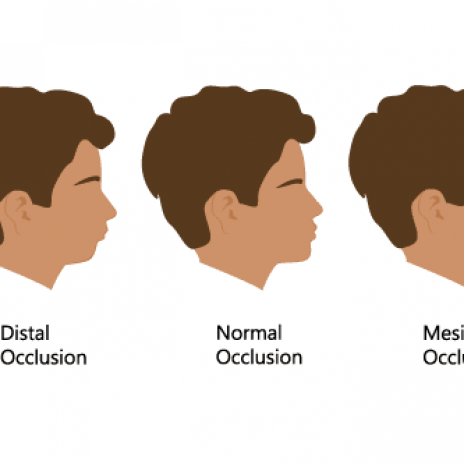What Are Overbites and Crossbites?
Dentists refer to teeth misalignments, such as an overbite or crossbite, as malocclusions. Overbites involve upper teeth protruding too far over the bottom teeth. Crossbites occur when upper teeth do not pass over the lower teeth. Instead, they are pushed back enough to fit behind lower teeth.
What Causes Overbites and Crossbites?
Overbites typically emerge in childhood when the size or shape of a child’s jaw is abnormal. Unless there is enough room provided by the jaw, teeth could erupt crookedly, resulting in an overbite or crossbite. Long-term pacifier or thumb-sucking after a child’s baby teeth have come in may be a reason for overbites. Loss of a tooth, genetics, teeth grinding (bruxism), and jaw joint problems are additional causes of overbites or crossbites. Children and adults with bruxism may need to wear a custom mouth guard to prevent tooth erosion and chipping.
Consequences of Untreated Malocclusions
In addition to causing chewing problems and pain, untreated overbites or crossbites can promote tooth decay, gum disease, tooth loss, difficulty closing and opening the mouth properly, as well as speech impediments. Moreover, neglecting to get dental care for malocclusions in childhood only allows the problem to worsen and potentially result in physical changes to facial structure.
Overbites and crossbites used to be treated with metal braces. Correcting mild to moderate malocclusions with traditional braces can take a year or more, requiring multiple visits to the dentists for tightening of wires and checkups. There is also the risk of discoloration and pitting with metal braces that are worn for more than six months. However, Dental Beauty offers solutions to fix overbites and underbites the do not require braces.
Overbite Correction
Revolutionizing the orthodontic industry and how dentists straighten teeth, the Invisalign system of correcting abnormal positioning utilizes removable aligners that fit comfortably over teeth. Invisalign aligners contain no brackets or wires and are almost invisible when worn because they are made from a transparent plastic material.
Invisalign wearers will be provided with a succession of differently molded trays designed to move teeth into the straightest position possible. Initially, the dentist evaluates the position of teeth and enters dimension information into computer software that predetermines the shape of each Invisalign aligner. This data is then sent to a laboratory where technicians create multiple customized Invisalign aligners.
Each aligner is worn for about two weeks before the patient discards the old aligner and begins wearing a new one. New aligners will have slightly different dimensions than previously worn aligners.
How Long Does It Take for Bite Correction with Invisalign?
Teeth will begin to move gradually as each aligner exerts enough pressure to move them into proper positions. Aligners need to be worn around 22 hours a day to accomplish desired results. Most patients complete treatment within nine to 12 months. Unlike metal braces, Invisalign trays can be removed when eating, brushing your teeth, or performing other actions that may require trays to be temporarily removed.
Does Crossbite Correction Take Longer Than an Overbite Correction?
Following a complete evaluation of a crossbite, your Dental Beauty dentist will discuss reasonable time frames for correcting a crossbite. In some cases, crossbites involve only one or two abnormally positioned teeth. Fewer teeth to move may help expedite completion time of treatment with Invisalign
Open Bite Correction with Invisalign
Less common than overbites or crossbites, open bites occur when the lower and upper front teeth both slant outward. When the mouth is closed, they do not touch each other. Open bites develop for mostly the same reasons other malocclusions develop.
Learn more about how Dental Beauty can fix overbite, crossbite, or open bite without braces by scheduling a consultation appointment today.


